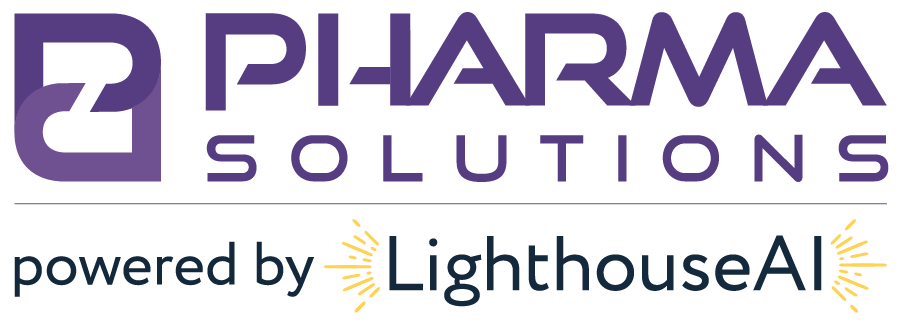Alabama’s New Rule Has Massive DSCSA Implications
on State Regulations
| by: Sumeet Singh, Founder & Chairman | Article Posted: May 24, 2023 |
In 2013, the United States Congress passed the Drug Supply Chain Security Act (DSCSA) with the aim of safeguarding patients against the infiltration of counterfeit drugs into the national prescription drug supply chain. This legislation specifically focuses on the activities of prescription drug wholesale distributors and third-party logistics providers, establishing precise guidelines where Federal law would preempt State law.
To bridge the existing gaps federal regulations and state regulations, states have started introducing new legislation. New legislation will begin to set the stage for a flurry of future state legislation and rule changes as laggard states work to catch up. The precedence set by Alabama today will set critical precedence.
Alabama’s SB20
The new AL rule wholly focuses on requirements for designated representatives. As part of compliance, one of the key requirements is the appointment of designated representatives in all facilities, who must fulfill specific criteria and undergo background checks. To ensure adherence to the DSCSA, the Alabama Board of Pharmacy (ALBOP) is proposing the introduction of registration prerequisites for designated representatives. This registration process will enable ALBOP to effectively verify and evaluate all applicants seeking the role of designated representative.
Ceiling vs. Floor
A heated debate in comments to the FDA Proposed Rules by stakeholders has focused on whether Federal Standards will impose a “floor” and/or a “ceiling” to state regulations. Generally, industry comments pushed for Standards to impose a ceiling so that states were unable to impose requirements more onerous than what was outlined in the Standards. This could potentially remove the prerequisite to licensure in multiple states that require Accreditation from NCDQS or NABP, and more. However, the California Board of Pharmacy pushed against the notion of the Standards also being a ceiling, because of their concerns on regulation of Designated Representatives and provided the most direct criticism:
“It is therefore curious that now, nearly eight years later, the FDA proposes to reverse course on its contemporaneous interpretation of Section 585(b)(1) issued in 2014. In the Proposed Rules, the FDA seeks to rescind the 2014 Draft Guidance as to the preemptive effect of Section 585(b)(1), and expresses for the first time its view that this subsection “will establish both a ‘floor’ and ‘ceiling’” because this interpretation “is more consistent with the language of the statute, Congressional purpose, and policy considerations.”
The Board of Pharmacy respectfully disagrees with the FDA’s new interpretation, based on the language and purposes underlying the adoption of the DQSA, and urges the FDA to revert to its previous preemption interpretation regarding Section 585(b)(1), as articulated in the 2014 Draft Guidance.”
Followed closely by KY BOP:
The Kentucky Board of Pharmacy adamantly demands that the “ceiling” preemption language be reconsidered. The Kentucky Board of Pharmacy should hold the authority to approve or deny a license for a WDD or 3PL based on the public’s best interest and health and safety of citizens of the Commonwealth. Additionally, the state licensing authorities must be able to conduct routine inspections or inspections based on complaints submitted by members of the public.
NCDA & CS pushes back on the concept of “floor and ceiling” by focusing on their rules and standard of being able to inspect licensees more than once annually; whereas federal standards suggest inspections should only be performed at time of renewal (2 to 3 year increments).
MSBOP investigated and found no documentation to support contemplation of standards being both the “floor and ceiling,” citing various case law:
- Russello v, United States, 464 US 16, 22-23 (1983)
- United States v. Naftatin, 441 US 512, 521(1972)
The Importance of Staying on Top of Changes
In light of Alabama’s new rule influenced by the DSCSA, the pressing need for a comprehensive software solution to manage regulatory changes becomes evident. As more states strive to align their regulations with federal standards, a wave of legislative activities and rule modifications is expected to follow. Alabama’s proactive stance in establishing requirements for designated representatives sets a significant precedent, highlighting the importance of a robust software tool to navigate evolving compliance needs. Amidst ongoing debates on federal standards as a “floor” or “ceiling” for state regulations, the implementation of Alabama’s law brings attention to stakeholders’ concerns, emphasizing the necessity for an adaptable software product to ensure seamless transitions and compliance with evolving regulations.
SB20 Would Change to 34-23-32 and is Sponsored by Senator Billy Beasley.
The Drug Supply Chain Security Act (DSCSA) was enacted in 2013 by Congress. DSCSA was created to help protect patients from counterfeit drugs entering the U.S. prescription drug supply chain. The Act specifically addresses the operations of prescription drug wholesale distributors and third-party logistics providers and sets distinct standards for each operation. This Act requires that our state statutes and rules align with the federal standard to close the gaps that currently exist in state-by-state statutes. One of the requirements is that all facilities must have a designated representative. All designated representatives must meet defined criteria and are subject to background checks. ALBOP is seeking to add registration requirements for designated representatives to comply with DSCSA. The registration of these individuals will allow ALBOP to properly verify and vet all applicants for the position of designated representative.
Act #2023-119: Effective August 1, 2023
Disclaimer: Pharma Solutions makes every effort to provide accurate information in the content it offers. However, the information provided is “as is” and Pharma Solutions makes no warranties, express or implied, as to the content provided. Pharma Solutions assumes no liability or responsibility for any errors or omissions in the content provided. Laws and regulations that are referenced herein may change over time and as such the content offered is not to be interpreted as advice. Pharma Solutions shall not be liable for any damages whatsoever incurred in connection with the use or performance of this information.





0 Comments